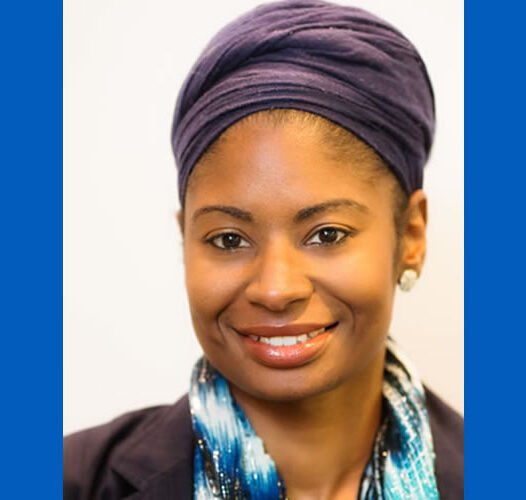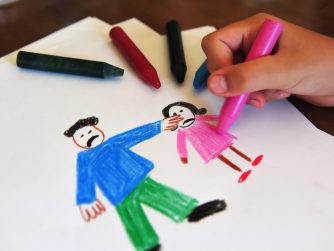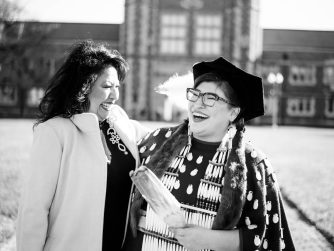Ronjonette Harrison
Social workers know that adolescents are still in the process of developing, both physically and psychologically. Developmentally, they are no longer children, but still have a ways to go before they are adults. This transitional period is essential for youth, who are both in the processes of figuring out who they are as individuals and where they fit into society, as well as developing the skills that they need to live well and be engaged citizens. However, legally, this period of developmental transition raises certain challenges that social workers, judges, and law enforcement must contend with. Central among these challenges are the questions: at what point should these youth be treated as adults, and what are the costs and benefits of having adolescents be treated as adults by judicial systems?
In this podcast, Ronjonette Harrison explores these questions through her experiences working with youth in the New York State judicial system. She starts with the observation that, while children and families who are involved with the child welfare system from the start are treated one way, youth of the same age who first become involved in the juvenile justice system are treated very differently, and reviews the negative outcomes of having youth go through the court system as adults. Harrison then explores current initiatives in the New York State judicial system that seek at address the problems of youth being treated as adults in the courts, and how assessing these youth from a bio-psycho-social perspective uncovers a host of concerns that led to the youths’ criminal offenses. She then explores the positive outcomes for youth, families, and their communities that have come from collaborations among social workers, judges, and law enforcement that focus on building relationships rather than punishing youth. In so doing, Harrison provides a model for judicial reform that builds up communities rather than locking youth into a cycle of violence and criminal offense.
Ronjonette Harrison, LCSW-R, is a Licensed Clinical Social Worker and Adjunct Professor with more than 15 years of experience. An accomplished psychotherapist, professional speaker, organizational consultant and recognized leader, Ronjonette received her MSW in Social Work at Stony Brook University. Her professional expertise and adaptive, versatile management style are highly sought after by nonprofit organizations, corporations and professional associations. Ronjonette specializes in depression, trauma, children, adult relationships and abuse. She is also highly regarded for her passionate commitment to the advancement of women in leadership roles. She has published several articles and/or collaborated on works for the Buffalo News, National Association of Social Workers (NYS Chapter) and Society for Social Work and Research(SSWR). Ronjonette has given the gift of time volunteering as on several local boards and committees including the United Way of Buffalo & Erie County, Erie County Youth Bureau, NYS Juvenile Justice Advisory Group and Big Brothers Big Sisters of Erie County.
Interviewer: Patricia Logan-Greene, PhD







Hoping that in time the courts will look at children as children especially black and brown children and provide resources that will help them keep out of the system